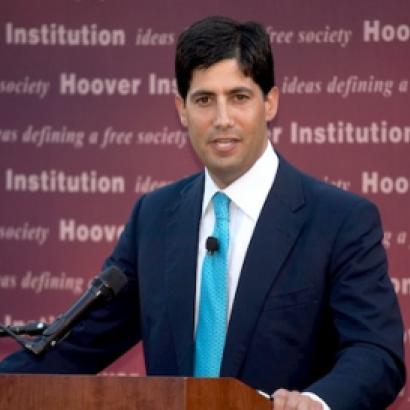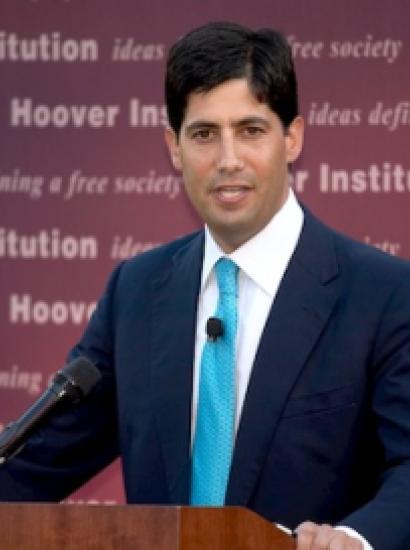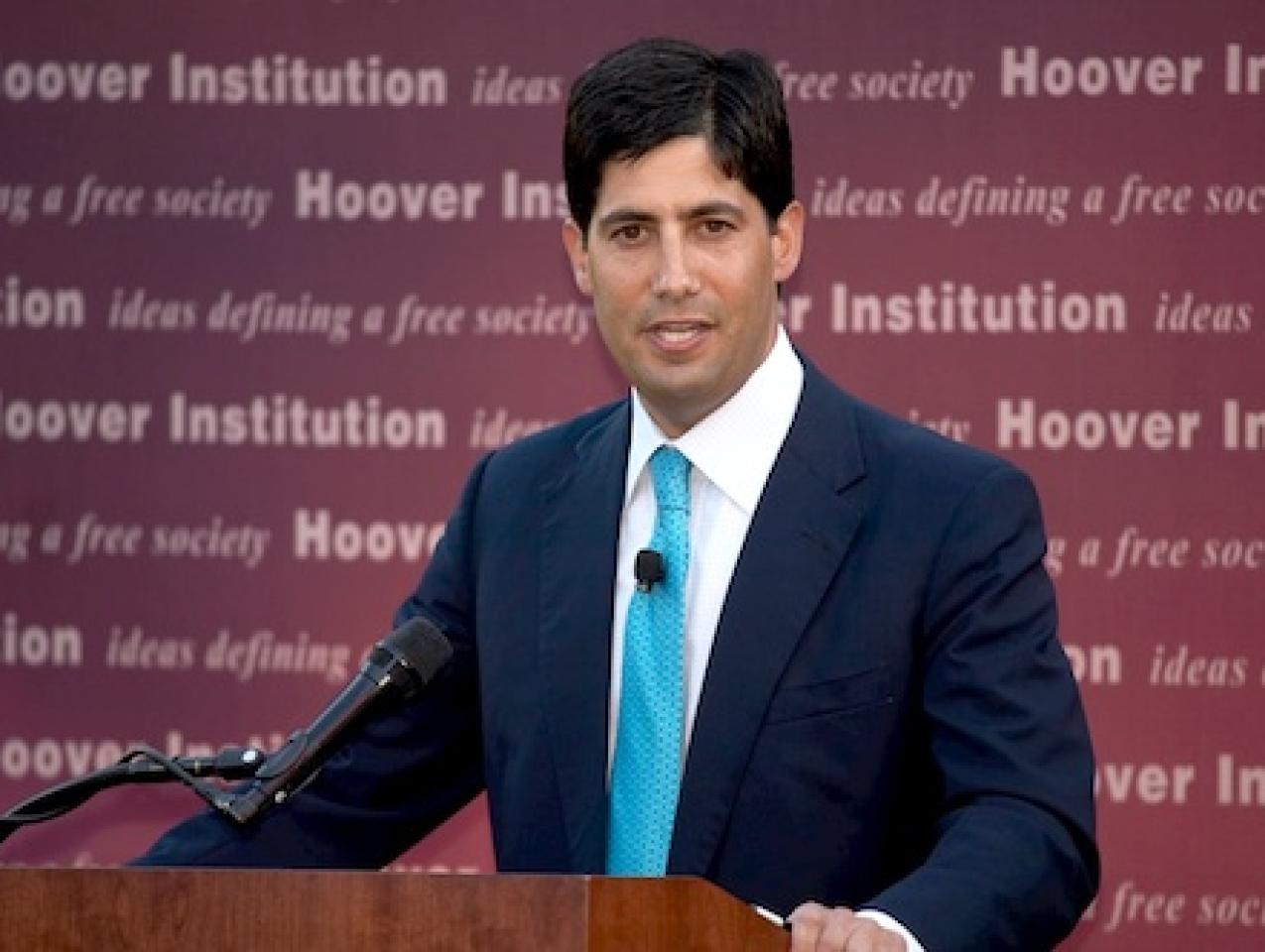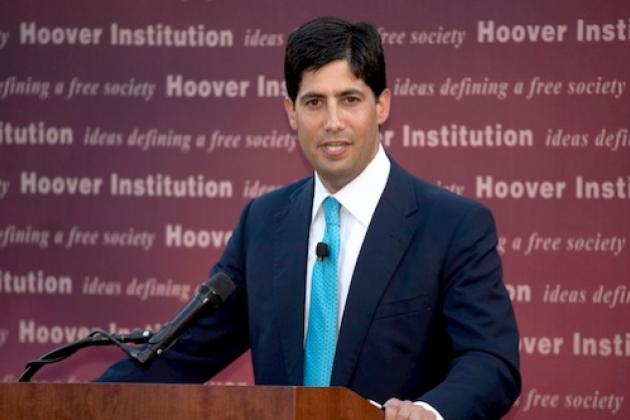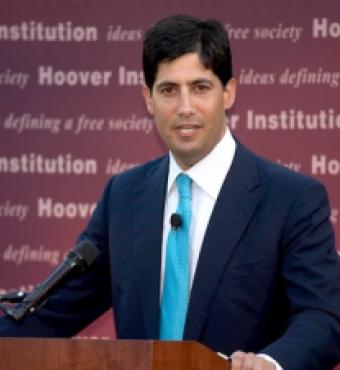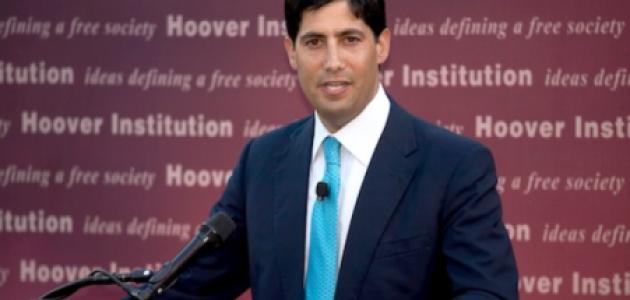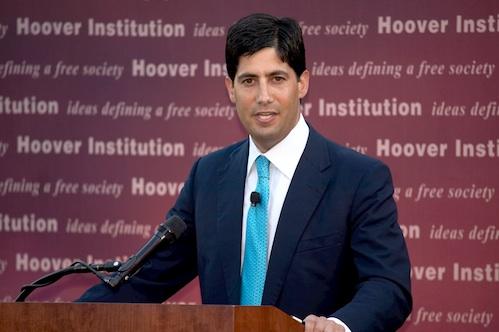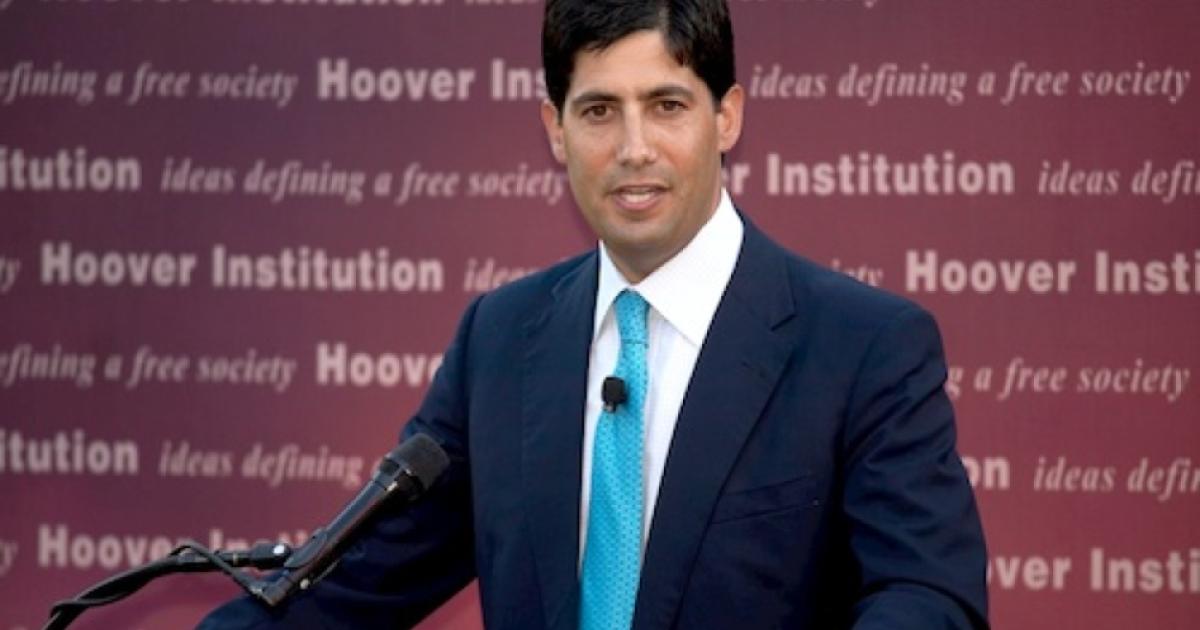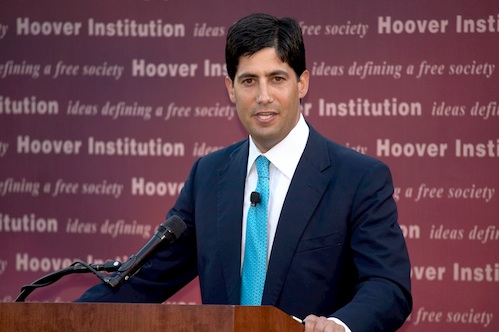
A member of the Board of Governors of the Federal Reserve System, Kevin M. Warsh, spoke on “Financial Market Development and Economic Policy” at a dinner on Wednesday, July 8, during the Board of Overseers Summer Meeting on July 8 and 9. “The panic of 2008 has subsided,” Warsh said. He cautioned, however, that the panic’s retreat should not be confused with a robust recovery.
In his overview of the Hoover Institution’s accomplishments during the past year, John Raisian, the Tad and Dianne Taube Director at the Hoover Institution, highlighted the Institution’s quick response to the unfolding economic crisis. In February, Getting Off Track, by John Taylor, the Bowen H. and Janice Arthur McCoy Senior Fellow at the Hoover Institution, was published; more recently, a coedited book by Taylor, titled The Road Ahead for the Fed, came out (both Hoover Press). Raisian added that Hoover fellows have written 370 commentaries on the economic crisis alone, all of which have been collected and are available online at the Hoover website (www.hoover.org).
Hoover fellows have also published extensively in other areas, such as public policy, the environment, and education, Raisian noted. New books by Hoover Press include Reacting to the Spending Spree: Policy Changes We Can Afford, the first joint publication by the Hoover Institution’s Task Force on Property Rights, Freedom, and Prosperity; Hoover research fellow Kori Schake’s Managing American Hegemony; Reroute the Preschool Juggernaut, by Chester E. Finn, senior fellow and chair of the K–12 Education Task Force; Learning from No Child Left Behind, by John Chubb, distinguished visiting fellow and member of the K–12 Education Task Force; and Greener Than Thou: Are You Really An Environmentalist? by Terry Anderson, the John and Jean De Nault Senior Fellow at the Hoover Institution and cochair of the Property Rights, Freedom, and Prosperity Task Force, and Laura Huggins, Hoover research fellow.
“The regime has died, but doesn’t know it,” said Abbas Milani, research fellow and codirector of the Iran Democracy Project at the Hoover Institution, about Iranian leadership. In a panel presentation, “Islamism and the International Order,” Fouad Ajami, professor and director of the Middle East Studies Program at the Paul H. Nitze School of Advanced International Studies at Johns Hopkins University; Charles Hill, a career minister in the U.S. Foreign Service and a Hoover research fellow; and Milani focused much of their discussion on recent events in Iran. Milani believes that Ayatollah Khomeini, seen as impartial at one time, lost much of his influence when he supported of Mahmoud Ahmadinejad in the contested Iranian presidential election.
In his presentation “The Threat of Protectionism: What’s at Stake?” Russell Roberts, Hoover research fellow and economics professor at George Mason University, said that “signs of protectionism today are alarming.” When trade is limited, opportunities to build an economy are lost, Roberts explained; adding that trade doesn’t destroy or create jobs—it changes jobs.
David Brady, the deputy director and the Davies Family Senior Fellow at the Institution, and Douglas Rivers, who holds a joint appointment as senior fellow at Hoover and a professor of political science at Stanford, discussed polling results. Rivers cautioned that such surveys can be misleading. Depending on the order and wording of questions, the respondents may vary their answers, he said.
The question of war was discussed by Victor Davis Hanson, the Martin and Illie Anderson Senior Fellow at the Hoover Institution, in his talk titled “War: The Father of Us All.” “War has been with us for 2,500 years,” Hanson, pointing out that there’s a utility to wars that leads to them.
Drawing on material from their new book, Reagan’s Secret War: The Untold Story of His Fight to Save the World from Nuclear Disaster, Annelise Anderson, Hoover research fellow, and Martin Anderson, the Keith and Jan Hurlbut Senior Fellow at the Institution, evaluated Ronald Reagan and his leadership. “Most people didn’t recognize and appreciate Reagan’s intelligence,” said Martin Anderson, noting that the question of who was running things often arose during his administration. Through their research, the Andersons found that the president, although open to differing viewpoints, was definitely in charge.
A tour of the exhibition A Revolutionary Idea: Hoover Making History since 1919, marking the ninetieth anniversary of the Hoover Institution’s founding, was given by Linda Bernard, deputy archivist at the Hoover Institution, and Nicholas Siekierski, assistant archivist in the Hoover Archives, where he currently serves as exhibit and outreach coordinator. Among the highlights of the exhibit are the original telegrams between Hoover and Professor Ephraim D. Adams, blueprints of our own Hoover Tower, and numerous selections from the Institution’s more than 100,000 political posters. Other highlights include such one-of-a-kind items as Leon Trotsky’s last Soviet passport; behind-the-scenes photographs of day-to-day activities at the Institution; and collections that shed light on current events, such as posters of Osama bin Laden and U.S. military publications from the wars in Afghanistan and Iraq.







